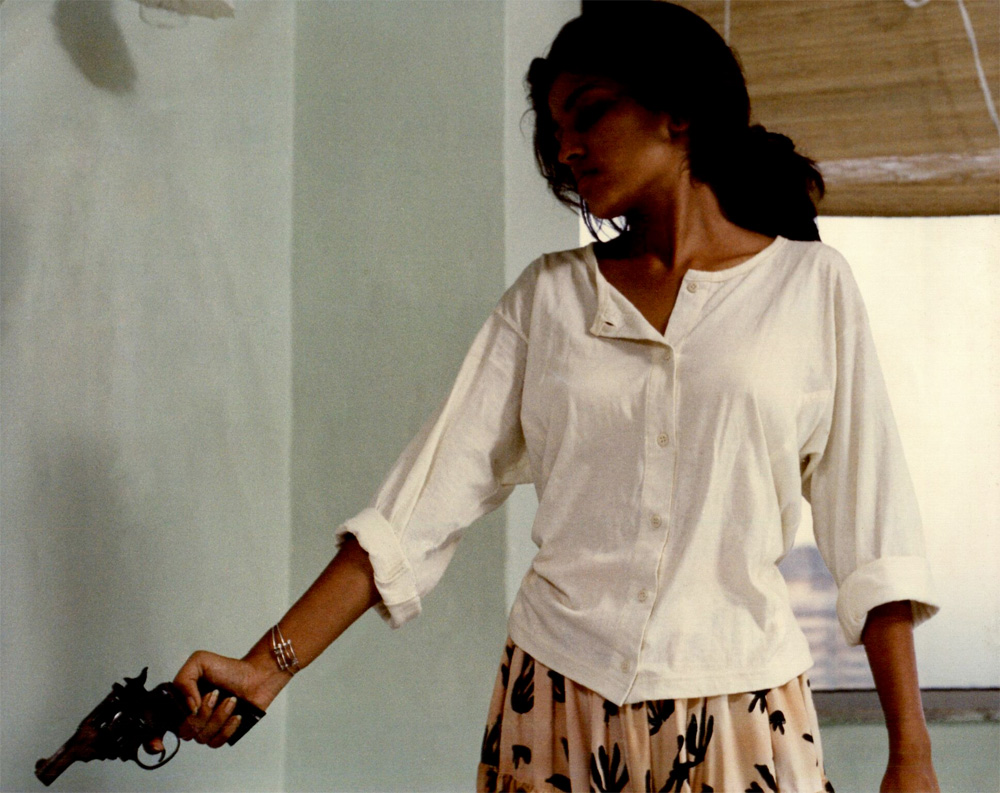Nazar (The Gaze)

Kauls verfilming van Dostojevski’s kortverhaal De zachtmoedige start net zoals Bressons versie met de zelfmoord van een jonge bruid (gespeeld door de dochter van de regisseur). Het grootste deel van de film schetst de vervreemding van de jonge vrouw, die eerst weerstaat en daarna toegeeft aan de gevestigde orde waarin haar plaats is bepaald. Het verhaal is uitgewerkt aan de hand van een orkestratie van de filmische ruimte, inclusief de constructie van “virtuele”, onvermoede ruimtes in het kader. De gefragmenteerde dialoog, die vaak functioneert als monologue intérieur, geldt als contrapunt voor het buitengewone gebruik van camerafocus dat soms de plaats van montage inneemt. (Ashish Rajadhyaksha, Paul Willemen)
“Within the European tradition, I am especially fond of Dostoyevsky, Matisse, Bresson and, barring his last two films, Tarkovsky. Despite being very different from one another these four are important for me. Once a student told me that all four had come together in Nazar; they had become suddenly present. Obviously, their presence in my work is an internal presence. I think a lot about what it is which could be common to all four of them. I feel all of them were working against the idea of perspective and convergence. This was, perhaps, the method of their work. In Dostoyevsky, especially, the manner of his writing is such that nowhere do you feel that the world is moving towards a convergence. It is rather as if numerous worlds are opening up …” (MK)
New digital restoration by NFDC.
Hindi with English subtitles